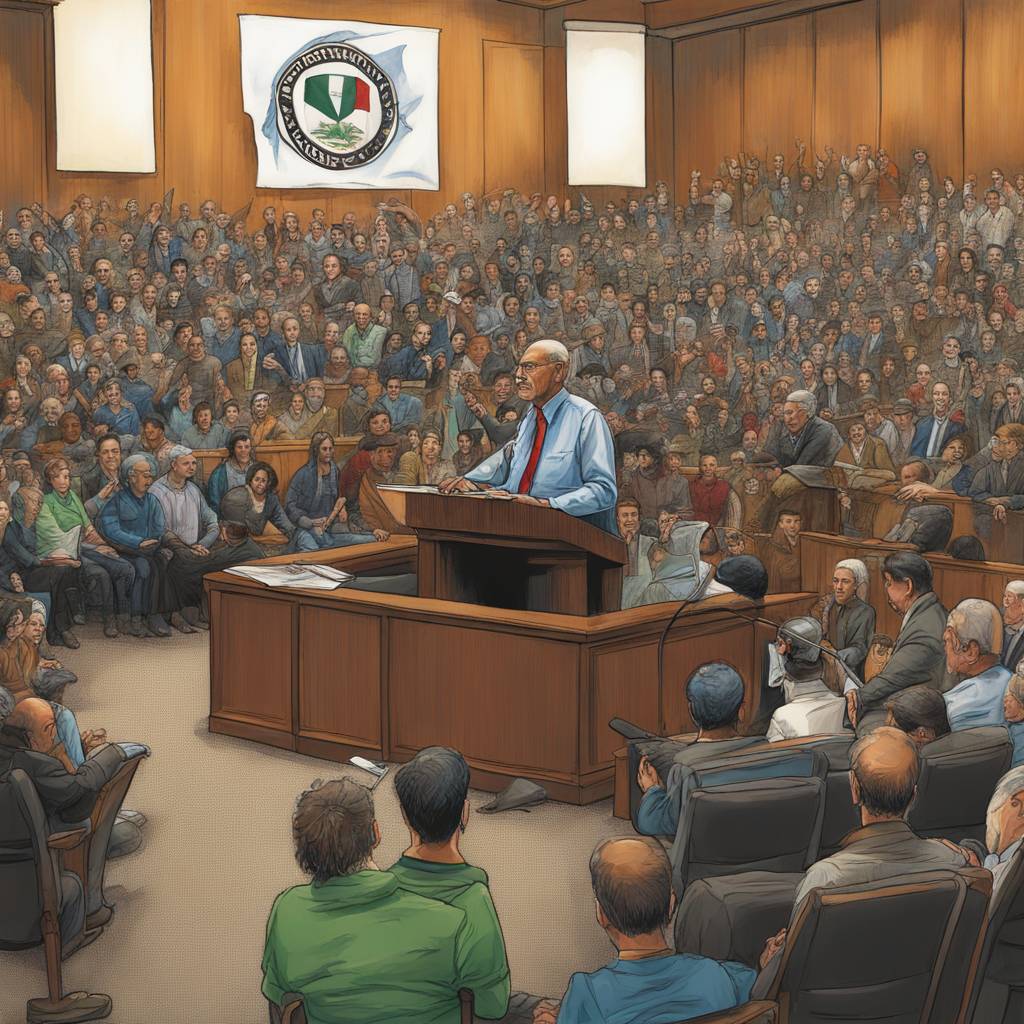Pro-Palestinian protesters disrupted a City Council meeting in Berkeley, California, shouting derogatory statements such as “Zionist pigs!” and “End Israel!” They also accused council members of being bought by the Jewish community, calling them “genocide” enablers and “traitors.” This behavior occurred during a discussion on marking Holocaust Remembrance Day and educational programs related to the commemoration. The protesters interrupted an 89-year-old Holocaust survivor, Susanne DeWitt, as she spoke about the surge in antisemitism and the impact of Hamas’ attacks on Israelis, including women being tortured and raped.
The protesters also shouted “Lies!” and other disruptions during DeWitt’s address, causing chaos in the meeting. DeWitt, who was taken to the Dachau Concentration Camp when she was 4 years old, urged the City Council to adopt the Holocaust Remembrance Day proclamation. The protesters claimed that the council members were part of a “Zionist stronghold” and accused them of being biased towards Israel. The protest in Berkeley is part of a larger trend of Pro-Palestinian demonstrations, as seen in disruptions at The University of California, Berkeley campus and the Israeli soldier’s speaking event at the school.
The Jewish Community Relations Council (JCRC) shared videos of the disruptive protest, highlighting the offensive language and behavior of the protesters. They emphasized that the meeting agenda did not include the Israel-Hamas war, yet the protesters targeted council members with accusations and insults. The protesters’ actions included intimidating a Holocaust survivor, stealing and throwing a Jewish man’s phone, and making false claims about the council members being influenced by the Jewish community. This behavior reflects a concerning rise in antisemitism and the politicization of discussions surrounding Israel and Palestine.
The disruptive protest in Berkeley is part of a larger conversation about the Israeli-Palestinian conflict and the impact it has on communities in the United States. The tension between pro-Israel and pro-Palestine groups has escalated on college campuses, in political discussions, and in public spaces. The conflict has reignited debates about free speech, political activism, and the treatment of marginalized communities. At the same time, concerns about antisemitism have grown as incidents of harassment, discrimination, and hate speech targeting Jewish individuals have increased.
The incident at the Berkeley City Council meeting illustrates the challenges of navigating discussions about sensitive topics such as the Holocaust, antisemitism, and the Israel-Palestine conflict. The clash between protesters and council members highlights the need for respectful dialogue, empathy, and understanding in addressing complex and deeply emotional issues. As tensions continue to rise in the region and around the world, finding common ground and fostering open communication becomes crucial in promoting peace, justice, and reconciliation among diverse communities. The disruptive behavior exhibited by the protesters serves as a reminder of the importance of engaging in constructive and respectful conversations, even in the face of disagreement and controversy.













